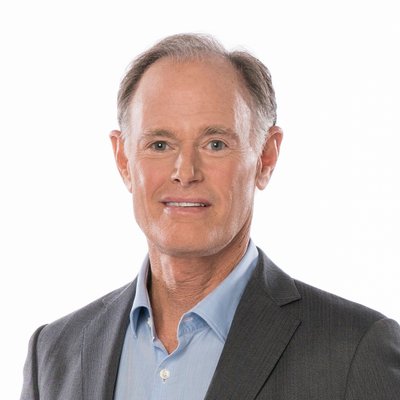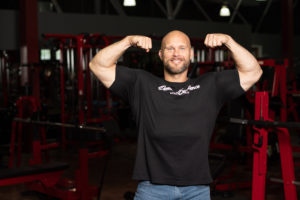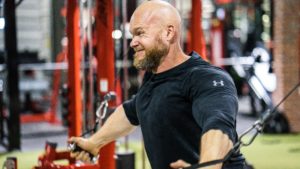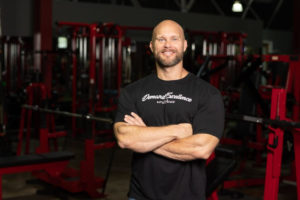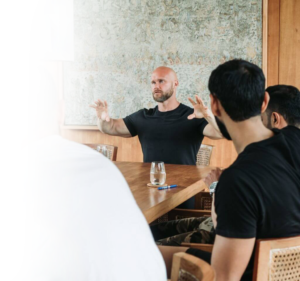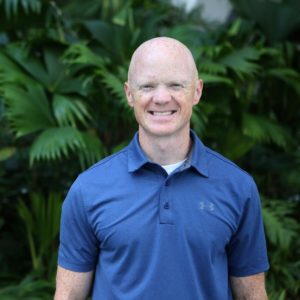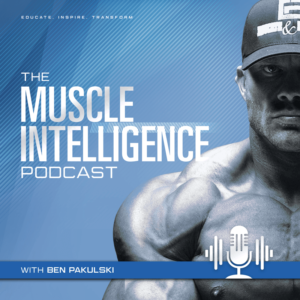This is an excerpt from Muscle Intelligence podcast episode 88 – Detox Your Mind for Clearer Thinking and Lasting Happiness, with Neurologist Dr. Perlmutter. This excerpt has been edited for clarity.
[0:06:04.9] Ben Pakulski: You are ultimately being subjected to neuroscience tactics and principles that are going to make you compelled to use your phone all the time. It’s been suggested that the average person is on their phone four to six hours a day. That’s obscene. I would just love to talk to you about where you started seeing this happening in your life and why you decided to write the book.
Dr. David Perlmutter: So it’s about six hours a day that we Americans are in front of one screen or another. That might be your phone, it might be your tablet, it might be your computer or television for that matter. Just that statistic should be worrisome, because there aren’t a lot of hours in the day, especially when you hopefully subtract eight of those hours dedicated to sleep. You’ve got time for exercise, meditation, preparing your food, eating your food. If you’re taking six hours out of your day just to be mindless on the Internet, just from that perspective alone, wow, what did you eliminate that was otherwise going to be good for you?
Then we do our best to transmit that information one-on-one to our patient, “Here’s what you need to be doing, why more exercise is going to be better.” It’s step three that we have the biggest letdown, and that is the follow-through, the action doesn’t happen, with respect to making the lifestyle recommendations about the food, the exercise, you name it, but even in terms of medication, people just don’t do things.
We realize that this decision-making problem that we seem to have, we call it non-compliance. Blaming the patient. “Oh, that patient’s non-compliant.” That’s a label that’s been developed for that person who doesn’t follow through, putting them in a category of people who don’t listen to their doctor. Well, it’s a bigger problem than that. That we all impose upon ourselves ideas about what we should be doing.
Oftentimes, we don’t do what we think we should do, and there’s no one excluded from this. I promise you. We blame ourselves, just as sure as the doctors blame the patients, we end up blaming themselves. As you described earlier, truly the deck is stacked against us.
So many of what goes on in our modern lives is taking us away, rewiring our brains figuratively and literally to keep us from locking into the good decision-making part of the brain, that area that we call the prefrontal cortex. It’s an area that says, “Let’s make a decision today that may be beneficial for us tomorrow, not just for me but for others around me, for the planet.” What’s the outcome going to be? What are the consequences of what I choose today? If I eat the jelly donut, or I decide to fast, or I decide to eat some food that’s good for me, what are the consequences tomorrow or in 10 years?
When our decision-making is impulsive, in other words coming from an area of the brain called the amygdala, we don’t care. We just do it and that’s it and that’s the best we can do, because our brains are wired that way and it’s not our fault. We don’t have the hardware anymore to make better decisions. The idea of blaming the patient, I think we need to move past that as physicians, as healthcare providers. The idea of blaming ourselves I think needs to be reassessed as well.
So many people blame themselves for not being able to stick to it. There are countless books out there now, wonderful books about being paleo, or keto, or vegan, whatever it is that’s interesting to you. You bought all the books, you signed on to the online summit, you learned everything you could. Wonderful. If you don’t follow through, it’s worthless. You can buy all the books you want. We know this. Now that I say that, you’re saying, “Yeah. Duh, we get that,” but the reality is so many people buy the books, get all the information, and that’s as far as it goes.
We can go on the websites and read about how this new thing might be good for us, how to target inflammation, or enhance mitochondrial function, reduce the action of free radicals, whatever it is, but we have to act. Unfortunately, so much conspires against us to give us access to that part of the brain. We have become disconnected from the good decision-maker in the room. In the new book Brain Wash, we call this disconnection syndrome. We get disconnected from this prefrontal cortex that allows us to make good decisions.
We know that not getting enough restorative sleep severs our connection. We know that a pro-inflammatory diet severs our connection. Not getting any contact with nature, not exercising, not relating to other people, all of these choices that we make in a single day threaten our ability to remain connected to that part of the brain that really is our gift as humans, our gift that allows us to conceive of a future, plan for the future, that allows us to participate in something called empathy, where we can see the world through another person’s framework, another person’s eyes.
As opposed to where we end up when we sever that connection, we end up behaving from the amygdala, where our decisions are short-term based. What do I want right now? Other people be damned, and it fosters an us versus them mentality, which you and I know is pervasive around the world right now, and being fostered by the process of inflammation.
One of the central themes of Brain Wash is that this inflammation that you’ve talked about at length in the past being central to things like diabetes, cancer, Alzheimer’s, heart disease, all of these chronic conditions, this inflammation is front and center as it relates to keeping us from connecting to that part of the brain that we desperately need. In the context of our Western diet being pro-inflammatory and the knowledge that this Western diet is becoming the global diet, increasing inflammation, it is then looked at through this lens of the global diet making us more us versus them, fearful and impulsive.
BP: Incredible explanation. The book does such a good job of clearly defining this relationship between the prefrontal cortex and the amygdala. Now I’m like, “Hey, is this feeding the amygdala, or is this feeding the prefrontal cortex?” That’s literally how I view it every life, or every day.
One thing I want to talk about is some people come into this conversation, listening this podcast saying, “Dr. Perlmutter, up until this point of my life I know I’ve been very amygdala-driven. I have all of these things that have happened to me in my childhood. This is my genetics. This is my environment.” What would you suggest people do who have that dialogue in their brain? “This is just who I am.” How do we start breaking that habit? Any suggestions on that?
DP: Well, I think the internal conversation needs to be, “This is who I am, but who do I want to be?” The empowerment part of neuroscience is what we call neuroplasticity, that we can rewire the brain. You talk to any of the leading neuroscientists, that’s standard discussion now, that we have the opportunity to make things better. Yes, we have all had our amygdala moments. We’re all on this together. We’re all trying to do better.

